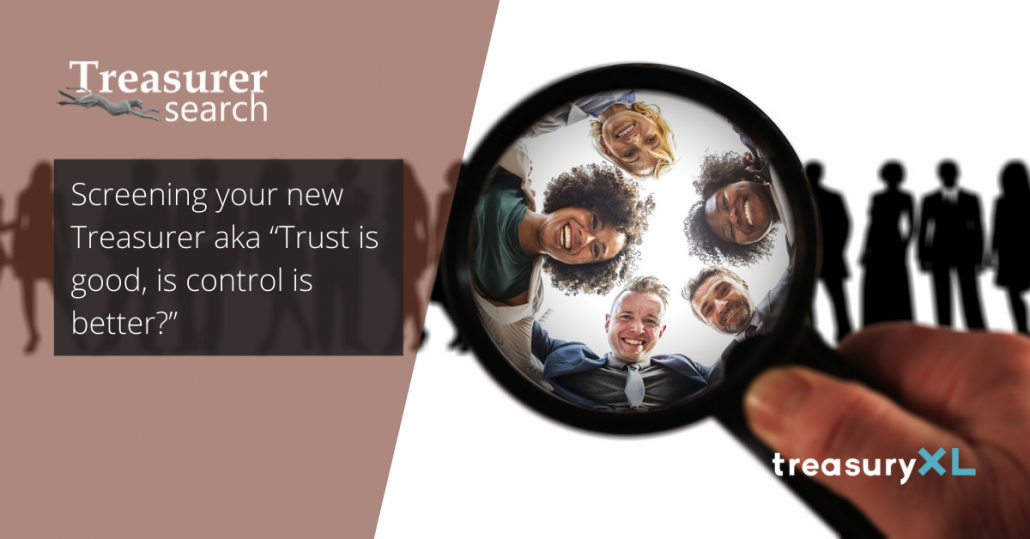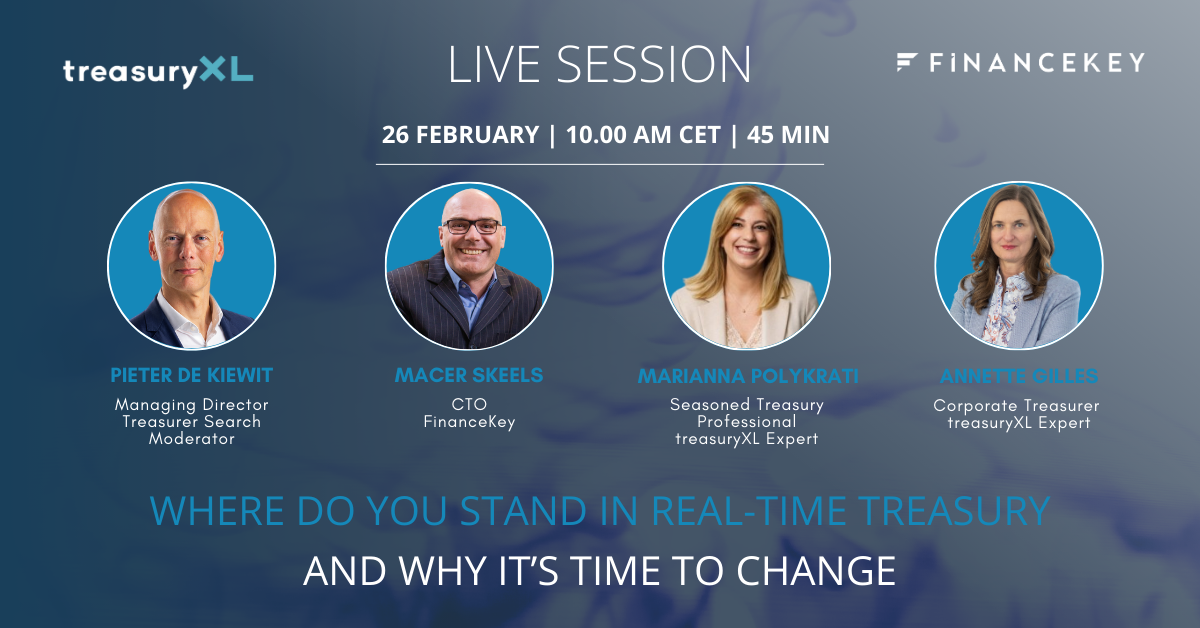26-01-2022 | treasuryXL | Pieter de Kiewit | LinkedIn |
Google tells me the statement “Trust is good, control is better” is from Lenin. Perhaps this says something about the Russian culture at that time, about Lenin himself and our thoughts about the statement might also tell us about ourselves. I looked this up because of the extra screening of a placed candidate a client asked me to do. You trust your treasurer with your money but is he/she worthy of your trust?

How can you trust somebody?
Our job as recruiters is to know what a client searches for in a new employee, in our case in treasury, and match this with what a candidate offers. And the other way around. This is all about tasks, skills, personality, ambitions et cetera. Our measuring toolkit holds cv screening, interviews, reference checks, of course the www.TreasurerTest.com, et cetera. But how do you know if you can trust somebody? Can one measure integrity?
There is some discussion among assessment psychologists. The ones doing sound scientific research into the matter, told me there is no proven methodology. So we can only rely on a concept that worked before: past behaviour is a strong indicator for future behaviour. This means, for example, checking diplomas and references to see if the candidate is not lying. A next step could be checking if the candidate has a criminal track record (in the Netherlands through a VOG).
Different standards in recruitment
Different country cultures lead to different behaviour in the labour market. My perception is that there is lot of trust in the Dutch labour market. Checking diplomas, references and ID is not the standard way to go. In the German labour market, the use of written references (Zeugnisse) is the standard and they are part of the application package a candidate sends in. Also trust varies per industry. Financial Services companies are more thorough as are organizations where employees work with children.
In others than the labour market, doubtful behaviour led to an increase in regulations. We all see this in the banking sector where compliance departments claim continuous investments, this is forced upon them by regulators. Currently KYC is the hot topic, before it was AML and I fear there will be further acronyms. This is all very understandable but I doubt if extra laws will really help change behaviour. Projected on the labour market: do you expect increased integrity from your employees because you triple checked if they did not lie? Trust is also the way to build a stronger relation with your employees who can, nowadays, find a job elsewhere easily.
You, as a potential employer, hire us to do screening and that is what we do. But of course we have an interest in the candidate being hired. I know we work with integrity but I can imagine clients wanting an extra, objective, check. There are third parties with objective screening in the labour market as their core business. If you want to know more, just let us know. And our question to you, do you think these type of services should be standard in recruitment?
I look forward to your thoughts,
Pieter de Kiewit
Owner at Treasurer Search




